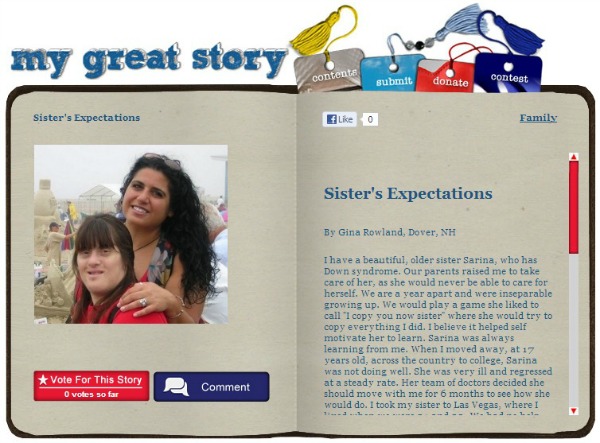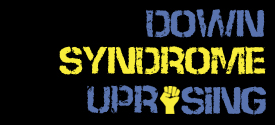March 21 is World Down Syndrome Day , recognized by the United Nations and intended to shine a broad spotlight on the most common genetic condition. Down syndrome affects nearly six million people worldwide.
Advocates celebrate, demand outrage
According to the official World Down Syndrome Day website, countries across six continents have planned at least 130 events to celebrate the day now recognized by the United Nations.
But parents and advocates question the benefit of such events in the wake of an incident that left a person with Down syndrome dead after an incident with police that escalated.
"Where is the public outrage?"
In January, Robert Ethan Saylor died while being taken into police custody in Frederick, Maryland. Saylor had Down syndrome. After watching a movie in a theater, he wanted to stay and watch it again. By various accounts, the situation escalated, and police moved to arrest him. He died soon thereafter. The chief medical examiner’s office in Baltimore ruled Saylor’s death a homicide as a result of asphyxia.
In a Washington Posteditorial, James Mulvaney asked, “Where is the public outrage over the death of Robert Ethan Saylor… for the crimes of petty larceny and, perhaps, disorderly conduct?”
He goes on to say, "A number of factors — inadequate training, a failure by movie personnel to recognize that a disability is not a crime, overreaction to what at worst might have been a misdemeanor — may have contributed to the death of a young man."
Mulvaney’s son has autism, a condition unaccompanied by any recognizable physical traits. Down syndrome typically includes several physical characteristics that Mulvaney says should be apparent to trained individuals.
Had the officers been trained to work with individuals with disabilities? Did the arresting officers recognize his condition? If not, why not?
And, as Mulvaney asks, where is the public outrage?
Awareness and celebration
World Down Syndrome Day traditionally focuses on awareness campaigns and celebrating individuals with that extra chromosome. This year is no different.
Down Syndrome International launched an awareness campaign called Lots of Socks. "We want to get people talking about WDSD on 21 March, and we can do this if we all wear socks… BUT NOT JUST ANY SOCKS… brightly colored socks, mismatched socks, long socks, printed socks... Just so long as they are socks which are on display and people will ask you about."
The National Down Syndrome Society will premiere a video project on WDSD that complements its 2013 My Great Story campaign, the largest NDSS public awareness initiative.

The campaign "is a collection of stories written by and about people with Down syndrome, with the goal of igniting a new way of thinking about Down syndrome," says Jordana Stern of NDSS.
"They are beautiful films that I'm happy to be able to share with the world," says Melanie McLaughlin of the Institute for Community Inclusion. "Many folks think people with different abilities aren't able — they couldn't be more wrong."
Calls for more action
But some parents say awareness is overdone and action is overdue.
"Notatypicalmom" is a blogger and mother of a child with Down syndrome. She posted her reaction to DSI’s Lots of Socks awareness campaign on the website Down Syndrome Uprising: "What exactly are we do-ing? What’s the end game here? First, I am beyond wanting ‘to raise awareness.’ Awareness might be one step below tolerance. I am for full-on acceptance and inclusion. Second, socks? An article of clothing that is mostly covered up? Is this the best we have to offer people with Ds in the world?"
She also addressed the prevalence of abuse of people with disabilities.
"This didn’t 'just happen' to Robert Ethan Saylor. It happens — period," she wrote. "People with disabilities are more likely to suffer from violence of all manners and on all fronts. If an individual is disabled and [is] a child, the rate of violence increases. If an individual is disabled — and also a person of color, the rate of violence soars."
Jen is mom to three children: A 7-year-old and 2-year-old fraternal twins, one of whom has Ds. Her blog, Down Wit Dat, focuses on research, advocacy and honesty.
In response to the many awareness campaigns to celebrate WDSD, she blogged, "Honestly, I've about had it with awareness. I'm done, finished. Most people are aware of Down syndrome by now… Instead of having yet another day of awareness, I'd like to make World Down Syndrome Day one of remembrance and action."
What kind of action?
"Speak out against the violence perpetrated against those with [intellectual and developmental disabilities] including Down syndrome," Jen urges. "Speak out against outdated, paternalistic practices by both medicine and education. Denounce stereotypes, the promotion of hatred and yes, even the R-word. Remember Robert Ethan Saylor and all victims of violence, of discrimination and neglect.
"We need action… It seems a lot more important than wacky socks."
Down Syndrome Uprising
Jen and other bloggers advocating for action have pooled their resources and ideas at a blog called Down Syndrome Uprising .

DSU describes itself "as a[n] initiative that organizes activists to engage in call-to-action campaigns to assure the civil and human rights of people with Down syndrome to live with full acceptance."
DSU blogger "Extranjera" pushes for real consequences from "an organization that barks up and makes a terrifying stink every time someone in the media, in medicine, in legislation, in the public eye, anywhere in the world, gaffes. Be it the R-word or a homicide swept under the rug," she adds, referring to Robert Ethan Saylor's death.
"… There must be anger and outrage that leads to shifts in attitude and to organized action. Instead of intentions, we need to focus on consequences, on what is, not what was intended."
Bridging gap between awareness and action
Some advocates hope the World Down Syndrome Day spotlight will shine a little sharper and a little hotter on the need for… more.
But more what?
Dr. Brian Skotko is a board-certified medical geneticist and co-director of the Down Syndrome Program at Massachusetts General Hospital. He lauds the benefits of bringing stories of real people with Down syndrome forward, via efforts like NDSS's My Real Story campaign. He also emphasizes the need for more targeted delivery.
"Rather than awareness campaigns collecting dust on the shelves of our national organizations, they need to be implemented," Skotko says.
"We need to… get those messages to those who don't even realize they need them: The newly minted teacher waiting at the bus stop, the co-worker watching the Super Bowl commercials, the physician reading one of her medical journals.
"Action, however, takes dollars, and lots of them."
Funding lags behind other conditions
While Skotko references the cost of funding effective awareness campaigns, funds for research related to Down syndrome is nearly nonexistent compared with other conditions.
In February 2012, the National Down Syndrome Congress, National Down Syndrome Society and Global Down Syndrome Foundation issued a joint statement expressing disappointment in a decrease in funding by the National Institutes of Health for research of Down syndrome.
The groups pointed out that while funding for other conditions such as Fragile X and Cystic Fibrosis increased, funding for Down syndrome at NIH "is significantly less and has plummeted since 2000."
Does a lack of federal support indicate a lack of awareness, a lack of action or both?
"Until every teacher sees untapped potential in students with Down syndrome, our work is not done," Dr. Skotko says. "Until every physician is knowledgeable about Down syndrome health care guidelines, our work is not done. Until every employer considers people with Down syndrome in their hiring processes, our work is not done…
"Awareness and action should be partnered, but until our world views people with Down syndrome the way they want and deserve to be portrayed, we need to carry on with the public awareness campaigns."
That does little to appease parents whose children continue to face challenges associated with Down syndrome. Rachel blogs at Words Hurt or Heal. Her son has Down syndrome and has battled leukemia for years.
"I am so AWARE of Ds right now," she wrote in 2012. "So AWARE of the politics of Ds right now. I want to trip someone. I want to rescue my child from this AWARENESS."
Organizations point to progress
Michelle Sie Whitten, executive director of the Global Down Syndrome Foundation, says the solution is more awareness and more action. She points to Global’s two-pronged approach with its Be Beautiful Be Yourself Fashion Shows, which focus on fundraising and awareness. She also points to the organization’s own spotlight on a lack of funding.
"Global was the first organization to call attention to Down syndrome being the least-funded genetic condition by our National Institutes of Health. Having brought awareness to this, we have now inspired action on many levels from funding to letter-writing campaigns."
Julie Cevallos of NDSS agrees awareness and advocacy are both necessary. "For NDSS, that translates into our advocacy work in Washington D.C. to pass updated legislation for issues related to work, saving money, and post secondary education. Post secondary education and healthcare for the aging population is huge and relatively new," she adds.
Do competing campaigns succeed?
As parents collaborate to voice concern and sometimes outright rage, many national and international organizations supporting individuals with Down syndrome continue to launch parallel awareness campaigns.
"I think it's great to have many points of view," Cevallos says. "[Multiple campaigns offer] many creative ways to entice people to listen. We learn from one another and we partner when it makes sense or we are able to."
Global Down Syndrome Foundation's Whitten points to the National Down Syndrome Congress's We’re More Alike Than Different campaign and NDSS’s My Great Story campaign.
"We believe they are very different in their messaging and their target audiences," she said. "We applaud both efforts and hope there will someday be a broader, national distribution of these campaigns."
More about Down syndrome advocacy
One mother's plea to stop use of the 'R' word
Learn to advocate for your child with special needs
How to make sure your child doesn't become Ann Coulter
